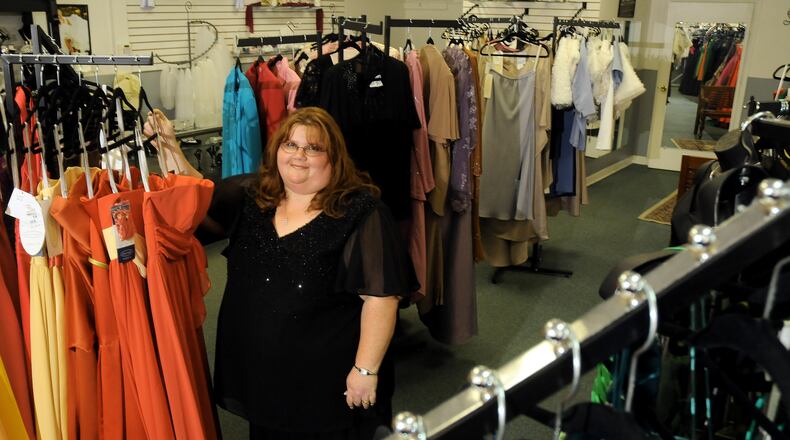The shop will remain open to sell off its inventory at discount and to fulfill its obligations to customers awaiting wedding gowns. There have been instances in recent years of bridal shops suddenly closing, forcing bridal parties to scramble to find appropriate wear.
“We can’t treat our customers that way,” Brad McCabe said. “We want to make sure they get what they paid for.”
Owning their own business was the couple’s dream. Brad McCabe had been through several rounds of layoffs in manufacturing. He was hoping owning a small business would give some stability to their life.
“I didn’t mind the hours at all. But when sales declined year after year after year, we couldn’t continue,” he said.
According to the Small Business Administration, the nation’s 23 million small businesses provide 55 percent of the country’s jobs and account for 54 percent of all sales nationwide.
But it is an ever-changing environment. Scott Shane, professor of Entrepreneurial Studies at Case Western Reserve University, calculated that only 41.1 percent of retail businesses survive the first five years. Shane used U.S. Census data for five years starting in 2005. The highest survival rate was the mining sector at 51.3 percent; the lowest was construction, 36.4 percent.
“The majority of the people in Springfield shop in Beavercreek, Dayton or Columbus. People feel like Springfield doesn’t have anything to offer,” Brad McCabe said.
The Greater Springfield Chamber of Commerce has recognized the problem. Its “Buy Springfield” campaign encourages local businesses and Springfield residents to keep their consumer dollars in the community. A dollar spent in Springfield will turn over seven times, according to the chamber.
About the Author
